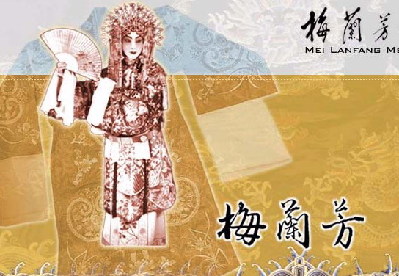www.meilanfang.com.cn
The Mei Lanfang Memorial Museum is located at the Huguosi Street in Xicheng District, Beijing. Preparation for the museum's construction began in December 1983 and the museum was opened to the public in 1986. Covering an area of 700 square meters, the museum, a typical Siheyuan (compound with houses around a courtyard) of old Beijing, is the former residence of Mei Lanfang from 1951 to 1961.
The museum boasts a collection of 32,421 items in the categories of plays, books, photos, play lists, manuscripts, calligraphies and paintings, and material objects, etc. Most of these items have value of cultural relics. For instance, quite a lot of the plays are hand-written copies of the Qing Dynasty (1644-1911), and most are complete ones or only extant ones. Stills of Mei Lanfang and some other distinguished artists, group photos of the Mei School artists and foreign renowned artists, and the play lists of various theaters and communal gatherings for celebration from the end of the Qing Dynasty to modern times are all very precious. What's more, there are calligraphies and paintings of artists of the Song (960-1279), Yuan (1271-1368), Ming (1368-1644) and Qing dynasties as well as the modern times, such as Wu Changshuo, Chen Shizeng, Chen Baochen, Qi Baishi, Xu Beihong, Chen Banding, Zhang Daqian and Fu Xinshe, etc.

The museum has three display rooms and a video projection room. The first display room introduces the art activities of Mei Lanfang in his lifetime; the second one shows the scenarios of Mei Lanfang's 10 visits to, performances and researches in foreign countries; the third one is the display room of Mei Lanfang's former residence, and includes the living room, the study and the bedroom, where the furniture and objects formerly used by Mei are on display. In the video projection room, the stage art films screened before Mei Lanfang's death, his biography films and newsreels are projected in turn to visitors.
Mei Lanfang (1894-1961) was a great artist who devoted most of his life and energy to Peking Opera. His performance, so creative and popular especially in playing the role of young women, has come to be called the Mei School.
